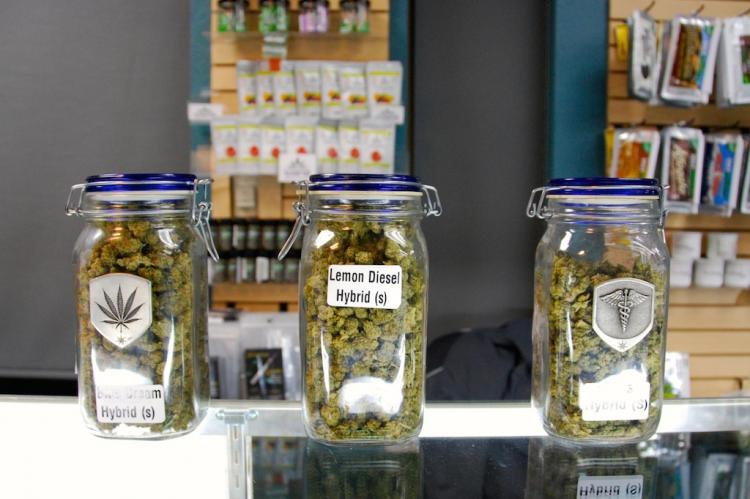Vermont officials, lenders look to SAFE Act to help cannabis industry
At least one large credit union, Vermont State Employees Credit Union, already provides lending services to a half-dozen medical marijuana dispensaries in Vermont, said Joe Bergeron, the president of the Association of Vermont Credit Unions. But for most of the Vermont institutions in the typically risk-averse world of business lending, passage of the SAFE Act is needed before it makes sense to enter the growing world of medical marijuana.
“Financial institutions that serve the cannabis industry today are taking an undue and unpalatable risk,” Bergeron said. That’s why so few financial institutions, in Vermont and elsewhere, are unwilling to do it, said Bergeron. He noted that 99 percent of all credit unions nationwide – and all the credit unions in Vermont – are insured by the federal government through the FDIC.
If a credit union lends to a marijuana-related business right now, “you’re putting that federal deposit insurance at risk,” said Bergeron.
“Have the regulators gone knocking on a credit union door and said, ‘If you keep serving that cannabis business, we’re going to take your federal deposit insurance away?’ No, but it is possible,” he said. “Following some agency’s guidance that says, ‘If you do it this way, even though it’s illegal we’ll kind of look the other way,’ that doesn’t give you a great degree of comfort.”
With that in mind, Vermont’s congressional delegation is supporting the SAFE Act, which Vermont U.S. Rep. Peter Welch co-sponsored. The bill passed the house in September but hasn’t been acted on by the Senate. It’s also included as part of the $3 trillion Health and Economic Recovery Omnibus Emergency Solutions Act, or HEROES Act, which follows the $2.2 trillion Covid-19 relief package that was signed into law in March.
Banks and credit unions argue that the SAFE Act will help mitigate the problems created when businesses must deal in cash instead of using banking services.
“We neither oppose nor support the legalization of marijuana in any form, but what we do feel is very important is that if there is going to be a sale of marijuana on the streets and out in public, like there has been in some other states, that money shouldn’t just be floating around on the streets,” said Bergeron.
While commercial sales of marijuana aren’t allowed in Vermont, growing the plant for personal use is permitted.
“It just makes the situation prime for increased crime and risk,” Bergeron said.
Heady Vermont, a Burlington-based group that works for cannabis reform, hasn’t taken an official position on the SAFE Act, said Kathy Blume, the group’s communications director.
But “given that obstacles to banking and basic financial services are hobbling the cannabis industry nationwide, given that the bill was passed by the U.S. House of Representatives by a vote of 321-103 last September, and would protect financial institutions working with state-approved cannabis companies, and given that legislators opposing the bill tend to focus on resolvable issues like potency, vaping related lung injuries, and impaired driving, I can’t see any reasonably justifiable excuse why it should not be made into law,” Blume said.
Like Bergeron, Chris D’Elia, president of the Vermont Bankers Association, said he and his members have been intensely focused since mid-March on helping business owners apply for Paycheck Protection Program loans and other Small Business Administration services. He also said the banking industry hasn’t taken a position on legalization. But banks support the SAFE Act, D’Elia said. He knows of at least one bank in Vermont that is already providing services to a cannabis business, and two that are developing internal policies so that they can do so.
“We’re taking an affirmative position on allowing an industry to access banking services,” D’Elia said.
ermont lenders have been intensely focused on issues raised by the Covid-19 crisis over the last two months. But they’re also keeping an eye on the federal Secure and Fair Enforcement (SAFE) Banking Act, because it would help them enter the growing market of cannabis-related businesses.
Vermont Attorney General TJ Donovan on May 19 joined a bipartisan coalition urging Congress to pass the SAFE Act as part of Covid-19 relief legislation.
Financial institutions are prohibited by federal law from providing services to cannabis businesses. Some, in states like Vermont where medical or retail cannabis sales are legal, have pushed to change the law so that lenders don’t face federal sanctions if they work with businesses operating legally in the state. Only medical sales are legal in Vermont, although lawmakers are considering a measure that would allow commercial sales as well.
- Log in to post comments

